MercoPress. South Atlantic News Agency
Economy
-
Friday, May 3rd 2024 - 10:59 UTC
Uruguay: Exports grow 27% interannually in April
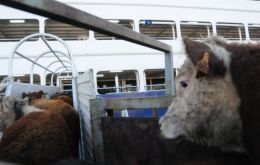
According to a study from the government's Uruguay XXI Institute released Thursday in Montevideo, the South American country's exports of soybeans, beef, live cattle, and cellulose drove the total sales abroad to a 27% growth in April from last year's figures during the same month and a 5% increase in the first third of 2024.
-
Thursday, May 2nd 2024 - 19:39 UTC
Argentina's BCRA again lowers basic interest rates in less than one week

Argentina's Central Bank (BCRA) once again lowered the benchmark interest rate from 60% to 50%. It was the fifth cutdown since the Libertarian administration of President Javier Milei took office in December last year. Thus, yields from fixed-term deposits will fall monthly from the current 5% per month to 4.2% for an annual effective rate of 64.8%.
-
Thursday, May 2nd 2024 - 19:11 UTC
Argentina: Drop in retail prices expected soon
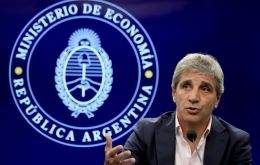
In line with President Javier Milei's chainsaw politics to curb inflation, Argentine supermarkets expect a drop in retail prices shortly once imported items arrive to compete with local production as agreed upon with the Economy Ministry in March, it was reported in Buenos Aires.
-
Thursday, May 2nd 2024 - 06:38 UTC
Falklands upgrades compensation for redundancy/unfair dismissal

The Falkland Islands Executive Council (ExCo) agreed on Tuesday 23 April, legislation updates have been approved for the Employment Protection Ordinance, specifically on compensation for redundancy/unfair dismissal.
-
Thursday, May 2nd 2024 - 05:15 UTC
Maritime traffic partially restored with temporary corridors at port of Baltimore
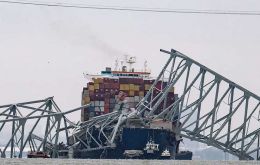
CBS News is reporting that the port of Baltimore, in Maryland has seen the arrival of a first container ship since the tragic collision and collapse of the Francis Scott Key bridge in March, with the loss of six lives.
-
Thursday, May 2nd 2024 - 05:08 UTC
The Fed leaves rates unchanged because of lack of further progress on lowering inflation

The United States kept interest rates unchanged, given “a lack of further progress” toward lowering inflation. This means the Fed rate at 5,25% and 5,5% is at the highest level in more than two decades.
-
Wednesday, May 1st 2024 - 23:50 UTC
Mondino assured of China's support for Argentina's stance regarding Malvinas/Falkland issue
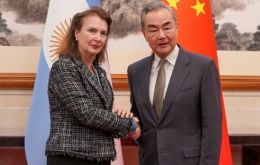
Although Argentine Foreign Minister Diana Mondino had the near-impossible task of putting her country on good terms with China despite President Javier Milei's disparaging campaign comments, some common ground was reached this week as the South American diplomat reaffirmed the one-China principle and Beijing backed Argentina's claim to the Falkland/Malvinas Islands.
-
Wednesday, May 1st 2024 - 21:28 UTC
Argentine unions ratify May 9 general strike against Milei's policies

Argentina's main unions insisted Wednesday during the Labor Day demonstrations that the plans for the May 9 general strike against President Javier Milei's economic reforms that are affecting people's purchase power were “not in doubt.” Healthcare workers union leader Héctor Daer, who co-chairs the General Labor Confederation (CGT), also explained that “We are going to go ahead with the struggle plan that we have been developing. When the measure was announced, Argentina ”was bad and now it is worse.”
-
Wednesday, May 1st 2024 - 19:23 UTC
Brazil: Unemployment reaches 7.9% in Q1
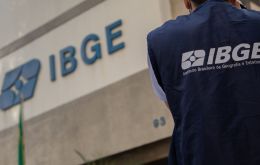
The Continuous National Household Sample Survey (PNAD) released by Brazil's Institute of Geography and Statistics (IBGE) this week showed that 8.6 million people (or 7.9% of the population) were unemployed in South America's largest country in the first quarter of 2024, which represented a 0.5 percentage-point increase from the previous measurement ending in December.
-
Tuesday, April 30th 2024 - 11:16 UTC
In 23 years bilateral trade between Latin America and China soared 35 times
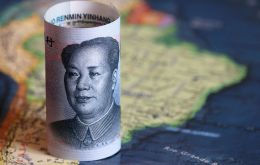
Trade between China and Latin American countries surpassed US$ 480 billion in 2023, compared to a mere US$ 14 billion back in 2000, based on data from the Customs Administration of the People’s Republic of China (AGA) and the UN Economic Commission for Latin America and the Caribbean, ECLAC.
